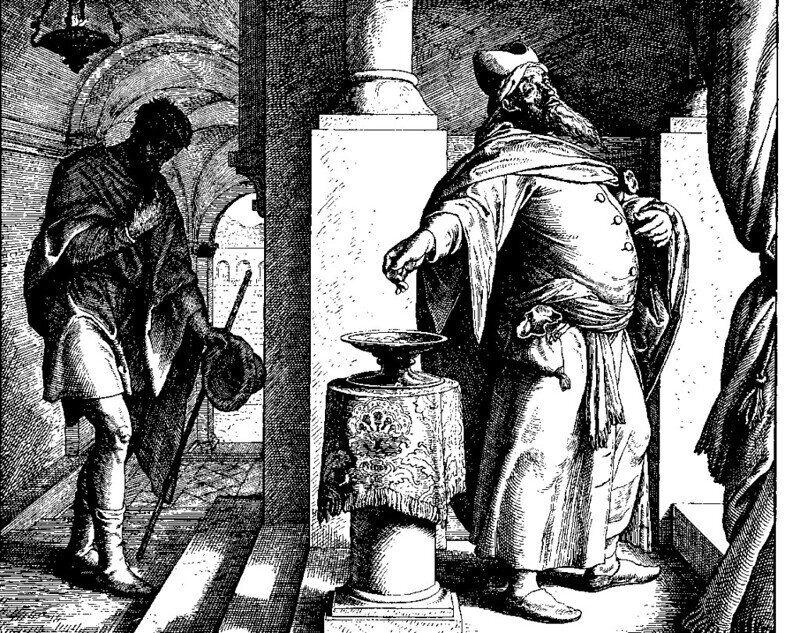When Jesus told the parable of the Pharisee and Tax Collector, there was a great deal packed into it. The Pharisee was certainly believing in his own righteousness, but what does the tax collector mean when he asks for mercy? When we ask for mercy, we aren’t merely asking God to overlook our sins, we are asking for an atonement that will truly cover over our misdeeds and enable us to be in his presence forever.
Image: The wub, CC0, via Wikimedia Commons.


